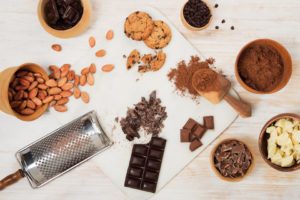Nearly one in 10 adults in South Africa are diagnosed with Type 2 diabetes – and many more are at risk. We asked dietitian Faaizah Asmal Laher to decode this disease. Faaizah is a wife, mother, spokesperson for ADSA (Association for Dietetics in South Africa) and dietitian working in Joburg. She loves cooking healthy, but yummy, meals.
By Lauren Shapiro
What is diabetes?
Diabetes mellitus refers to a group of diseases that affect how the body uses glucose, commonly called ‘blood sugar’.
What causes it?
Many factors (including family history, genetic make-up, ethnicity and lifestyle) play a part. Lack of exercise, smoking, obesity and a diet high in fat, salt and sugar – together with a family history of diabetes – greatly increase the risk of developing Type 2 diabetes.
What is the difference between type 1 and type 2 diabetes?
Insulin is an important hormone that ‘opens’ the body’s cells, letting glucose in to be used as fuel. Type 1 diabetes develops when the body’s immune system attacks the cells in the pancreas that produce the hormone, so there is no insulin to let glucose in. It cannot be avoided, but it can be treated with daily insulin injections. Type 2 diabetes is greatly influenced by family history and lifestyle, so healthy choices can help prevent it.
Why is it such a major problem?
Obesity is behind the dramatic rise in Type 2 diabetes in South Africa. One main cause of obesity is urbanisation. Here in SA, millions of people migrate from rural to urban areas in pursuit of work, often adopting a diet high in fat, sugar and salt. City dwellers also often get far less exercise than they should.
What are the warning signs?
Increased hunger or thirst, frequent urination, fatigue and unexplained weight loss are all signs. More severe symptoms include slow-healing sores, recurring infections and blurred vision. If you experience any of these, visit your doctor or clinic.
PREVENTION IS BETTER THAN CURE
1. It’s never too late to avoid or treat diabetes. Type 2 diabetes can be controlled with diet and lifestyle
changes, with or without medication (always consult your doctor).
2. Choose wholegrain products such as wholewheat bread rather than white, brown rice instead of white and sweet potatoes in place of regular ones.
3. Exercise improves the body’s ability to use insulin and absorb glucose. Start with a brisk walk five times a week.
4. Limit red meat, processed foods and full-fat dairy products and opt for lean chicken, fish or low-fat milk and cheese in order to reduce your risk of developing diabetes by 35%.
5. Vegetarian meals boost your intake of fibre, which helps control blood sugar.
6. Avoid ‘bad fats’ such as animal fats, deep-fried foods and hard margarine. Rather eat olive oil, low-fat mayonnaise and avocados in small amounts.
7. Quench your thirst with water and unsweetened tea or coffee, not with sugary cooldrinks.




